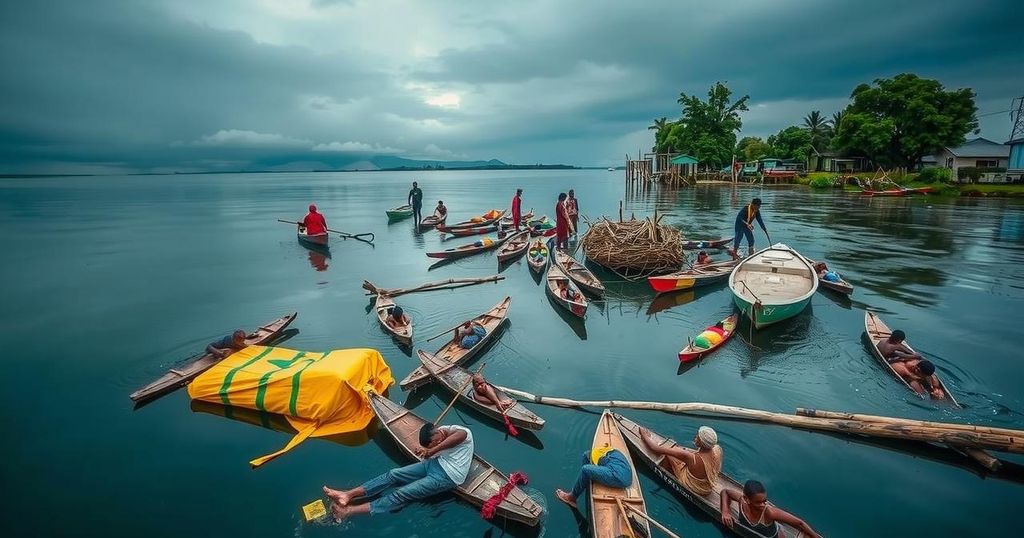PANDEF Highlights Niger Delta’s Unique Marginalization amidst National Resource Wealth

The Pan-Niger Delta Forum (PANDEF) states that the Niger Delta is the only region in Nigeria deserving to claim marginalization, responding to claims made by the Arewa Consultative Forum about the North’s impoverishment under current economic policies. Chief Christopher Ominimini emphasized the environmental damages and poverty experienced in the Niger Delta, despite its oil wealth benefiting the national economy while locals remain disadvantaged. He asserted the need for equitable resource distribution and reforms to combat systemic injustice toward the region.
The Pan-Niger Delta Forum (PANDEF) has firmly asserted that the Niger Delta stands alone as the sole region in Nigeria that can legitimately claim marginalization and impoverishment. This statement emerges as a rebuttal to comments made by the Arewa Consultative Forum regarding the economic policies of President Bola Tinubu, which they argued were detrimental to the North. Chief Christopher Ominimini, the National Spokesman of PANDEF, emphasized the disparity between the wealth generated from the Niger Delta’s oil resources and the lack of corresponding development experienced in the region.
He lamented the pollution and degradation resulting from decades of oil exploration, which have severely impacted local agriculture and the environment. Despite the region generating significant national wealth, Ominimini pointed out that the benefits of oil revenue are not felt by the people of the Niger Delta, who continue to grapple with poverty and a damaged ecosystem. He remarked, “Our resources feed the nation, while resources from other geopolitical zones are kept for their own use.”
Ominimini highlighted the injustice where revenue from oil extracted in the Niger Delta contributes to the federal coffers, while resources such as gold from the North are retained locally. He argued that this inequality hampers national progress and insinuated a connection between regional disparities and socio-economic unrest, notably in Northern Nigeria, where illegal mining operations proliferate. He urged the Federal Government to establish a legal framework to support artisanal mining, presenting it as a means to generate employment and curtail corruption.
Moreover, Ominimini expressed concern over the opacity in the oil sector, where locals remain unaware of the quantities of resource extraction. He criticized the federal oversight, wherein foreign oil companies operate with little accountability towards the local populace. He declared, “The Nigerian state is wicked to the Niger Delta Region,” and expressed frustration towards the federal government’s neglect of the environmental crises that oil production has wrought upon local communities.
He concluded with a solemn warning regarding the consequences of continuous exclusion and neglect, asserting, “If things do not change, God will come to our rescue.” Ominimini’s statements encapsulate the enduring grievances of the Niger Delta, reinforcing the necessity for urgent and comprehensive policy reforms aimed at rectifying the systemic injustices faced by the region.
PANDEF maintained that the Niger Delta represents the most impoverished population in Nigeria, warranting immediate attention to ensure equitable distribution of resources and opportunities.
The Niger Delta region in Nigeria is rich in oil resources, substantially contributing to the national economy. However, despite its wealth, the region suffers from underdevelopment, environmental degradation, and widespread poverty. This socio-economic disparity sparked reactions from various regional groups, notably the Arewa Consultative Forum, which pointed to perceived injustices faced by the North. PANDEF’s response seeks to highlight the unique challenges of the Niger Delta, arguing that it has endured decades of neglect and exploitation without corresponding benefits. This ongoing marginalization raises questions of fairness regarding resource control in Nigeria’s diverse geopolitical landscape, further complicating regional relations.
In conclusion, PANDEF’s assertion highlights the distinct grievances of the Niger Delta, a region that remains impoverished despite its critical role in Nigeria’s oil industry. The contrast between the wealth generated and the lack of local benefit underscores systemic injustices that demand immediate rectification. Ominimini’s remarks compel recognition of the Niger Delta’s unique challenges and advocate for equitable policies that address the long-standing disparities and promote regional development.
Original Source: punchng.com







